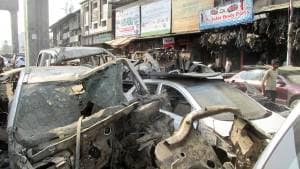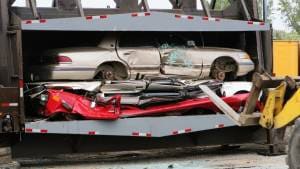Vehicle Scrappage Policy - the complete picture - all you need to know
The soon to be introduced scrappage policy has put a question mark on the future of historical and old vehicles in India. Over the last couple of weeks I have spoken with several leading luminaries like Dr. Ravi Prakash, Diljeet Titus, Gautam Sen, Manvendra Singh Barwani, Dr. Anjan Chatterjee, Tarun Thakral, Ranjit Pratap and T. R. Raghunandan, all of whom are from different clubs, associations, museums or organizations associated with our historical car movement.
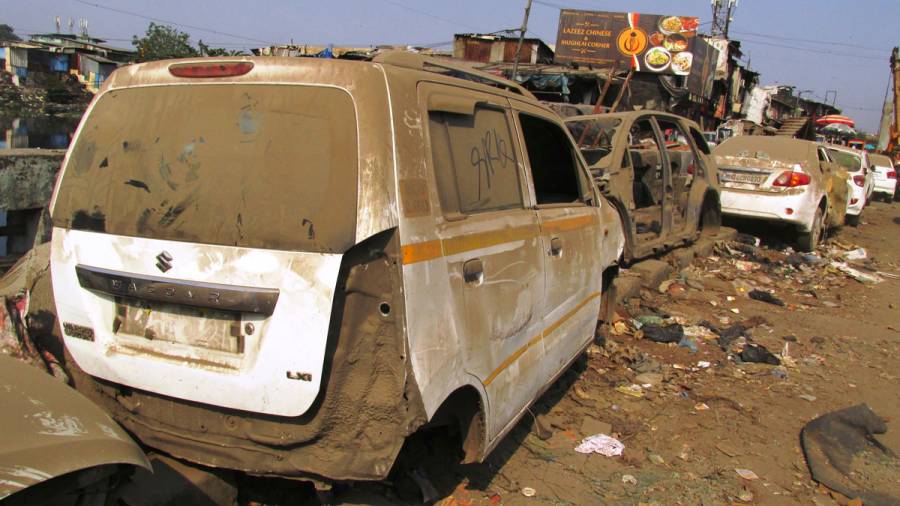 The vehicle scrappage policy is a cause of concern for owners of older vehicles
The vehicle scrappage policy is a cause of concern for owners of older vehicles
We also reached out to stalwarts of the classic car world like Nitin Dossa and Viveck Goenka, but are still to get any response from these gentlemen. Another office-bearer from the western region promised to provide his viewpoint and subsequently said he had sent it. But despite reminders, all I have received are his photographs without any replies to the questionnaire. It's really baffling, why not just say "No Comments". Nevertheless, we have got some very insightful views from some very qualified personalities, so let me summarize these significant findings. I am also taking the liberty of including some of my own thoughts.
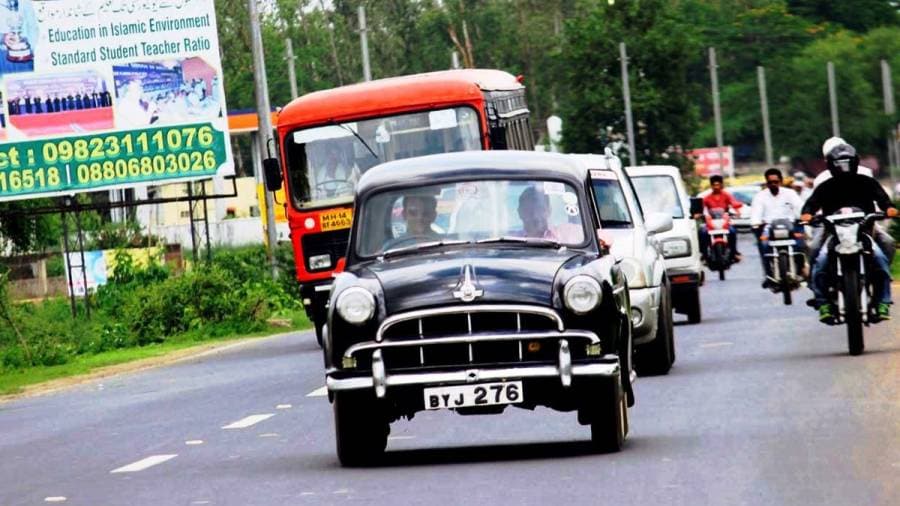 Such old cars are not daily drivers and only occasionally come onto the road
Such old cars are not daily drivers and only occasionally come onto the road
Policy and pollution due to private vehicles - The point to note is that private vehicles that are over 20 years old and which the scrappage policy wants to do away with, are not daily drivers and do not come out on the road every day. Thus they are not significant contributors to air pollution. And replacing them with newer less polluting vehicles will not significantly reduce vehicular pollution.
The NGT ban on 10 year old diesel and 15 year old petrol vehicles in the NCR region has not resulted in any noticeable reduction in air pollution levels. In fact in the winters of 2018 and 2019, the AQI (Air Quality Index) in Delhi was worse than ever before. So obviously vehicles are not the only cause of air pollution. Construction, industry, brick kilns, coal energy plants, burning of stubble, burning of garbage and so on, cause a lot more pollution. And these need to be attacked aggressively. Not just vehicles that are always a soft target.
 With all construction and industrial activity shut in the lockdown, the clear skies showed vehicles are not the only polluters
With all construction and industrial activity shut in the lockdown, the clear skies showed vehicles are not the only polluters
Policy and pollution due to commercial vehicles - Interestingly, most of the luminaries I spoke to concur that commercial vehicles are the ones that cause the majority of vehicular pollution as they are almost constantly in use. They are also very poorly maintained. Commercial vehicles, apart from a few, are not attractive collectibles and neither is there any emotional connect as they are largely driven and used by employees. Given this, scrapping them when they pass the age of 15 years is justified, and should be mandatory.
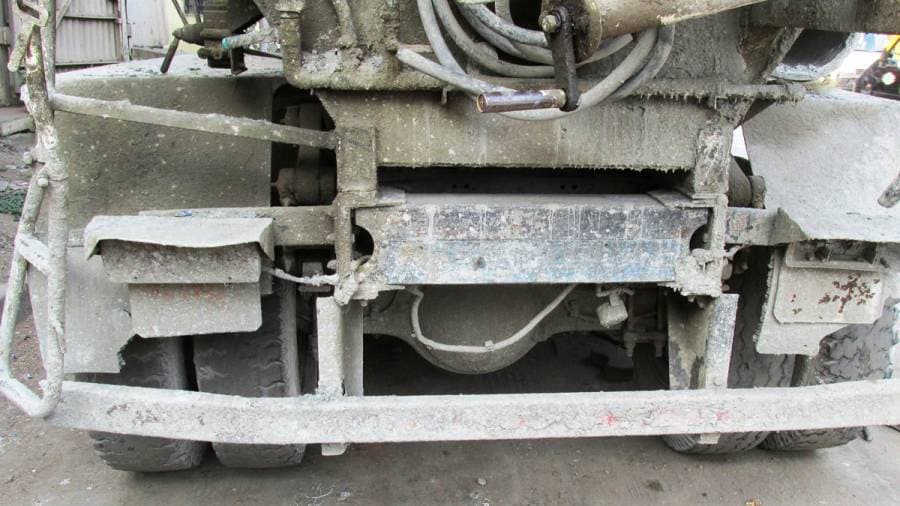 Commercial vehicles are often poorly maintained so it should be mandatory to scrap them after 15 years of age
Commercial vehicles are often poorly maintained so it should be mandatory to scrap them after 15 years of age
Policy and vehicles over 50 years in age - It is believed the scrappage policy will exempt vintage vehicles that are 50 years and older, which is a very welcome step. But the majority of people I spoke to, also believe that there must be a separate categorization of private vehicles that are between the age of 30 and 49 years, and it is equally important that these are exempt from the scrappage policy. These vehicles are part of India's industrial and cultural heritage and this was recognized by the Cartier Concourse event that introduced the "Indian Heritage Class". After which, cars like the Hindustan Ambassador, Premier Padmini and also Maruti Suzuki SS 80, have become very popular. And as they are more affordable to collect and restore, more enthusiasts are being attracted to the classic car movement.
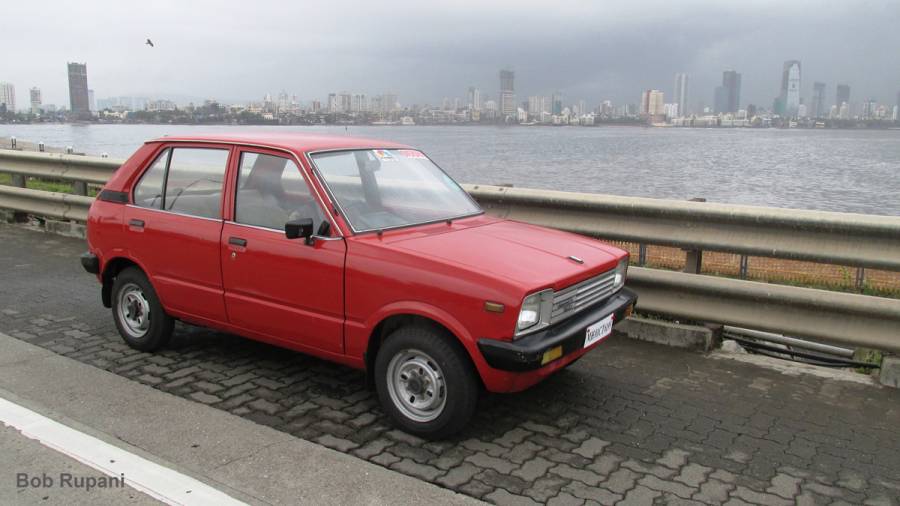 The Maruti Suzuki SS80 started the automotive revolution in India and is an important part of our industrial and automotive heritage
The Maruti Suzuki SS80 started the automotive revolution in India and is an important part of our industrial and automotive heritage
Policy and vehicles between 30 and 49 years in age - The larger view is that historic vehicles are not only those over 50 years old, but also the ones between 30 and 49 years in age. So there must be a different categorization or a way to also exempt them from the scrappage policy.
Older vehicles are not only retained by classic car enthusiasts. But also by many pensioners and retired people with a lower income who may not be able to afford a new car. Several such people only take their cars out on special occasions or family outings. In my view it's not right to ask such people to scrap their old vehicles. A friend in the army tells me that before they retire, many armed forces personnel buy a vehicle, which they retain for the rest of their lives. If such people also have to scrap their cars, it will be very unfair.
 The Premier Padmini is also part of our motoring heritage
The Premier Padmini is also part of our motoring heritage
Certification of "Vintage Motor Vehicles" - As per Diljeet Titus, General Secretary HMCI (Heritage Motoring Club of India), "All motor vehicles which are at least 50 years old from the date of their first registration and which are registered as "vintage motor vehicles" under the proposed new registration rules, will not be subject to the scrapping policy. Vehicles will be approved for such registration after evaluation by a three person committee comprising the Transport Secretary/ Commissioner, a representative of an automobile association and an expert, if needed".
According to T. R. Raghunandan, Former IAS officer and life member of the KVCCC (Karnataka Vintage and Classic Car Club), "A committee will create an unnecessary bureaucracy, slow down the certification process and may result in conflict of interest of the invited expert, who may be a collector. As the documents for the vehicle speak for themselves, self-certification of a vintage car would suffice".
In my view, a committee to certify if a vehicle is vintage, historic, and classic, etc., can lead to complications. In the typical Indian bureaucratic manner it will require pleasing and persuading people, who may, or may not be favourably inclined to you. Then of course is the question of conflict of interest if the certifier is also a car collector or trader. Given this, I would go with T. R. Raghunandan's view of self-certification. If it can be done for our IT (Income Tax) returns which are accepted by the government, why not for historic cars. Only in a case where clear papers or evidence of antiquity or originality is not available, or is doubtful, should there be a requirement of certification from anybody else.
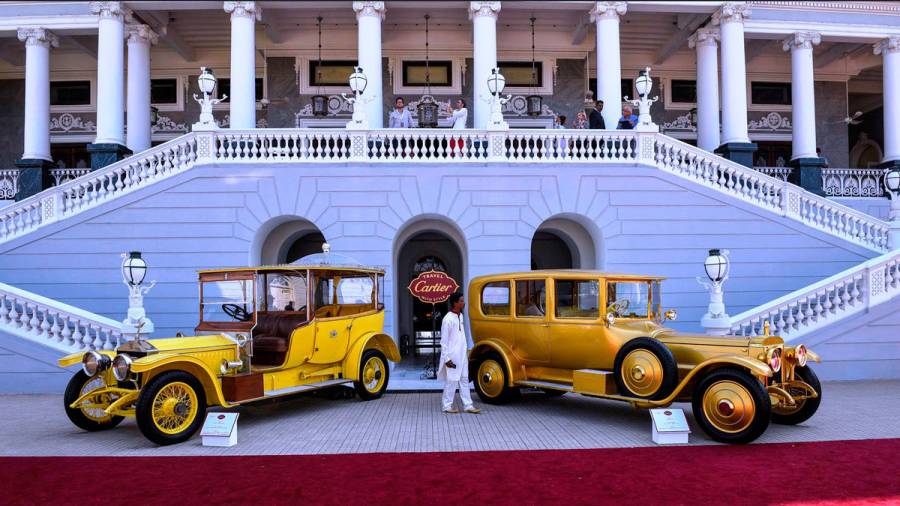 Over 50 year old "vintage motor vehicles" registered under the proposed new registration rules, will be exempt from the scrappage policy
Over 50 year old "vintage motor vehicles" registered under the proposed new registration rules, will be exempt from the scrappage policy
Policy and disincentive costs - Everyone is happy the scrappage policy is voluntary and not mandatory. But the additional cost of the green tax, renewal of registration and clearing the automated fitness test, is a cause of concern for those who own cars that are over 20 years old.
While it is true that by passing the fitness test and paying the heavy additional (disincentive) taxes and fees you could continue to use your vehicle, there is a justified view that this may be expensive and unaffordable for many owners. So there should be a way to retain your vehicle without paying these additional charges and classic car owners are more than happy to comply with any laws that discourage everyday use of their vehicles, as long as they are permitted to bring them onto public roads for events, exhibitions, and on certain special occasions or festivals. And as classic car owners love their vehicles, they keep them in good running condition, so they do not pose any safety threat. This is unlike many old commercial vehicles that are falling apart but are still in use.
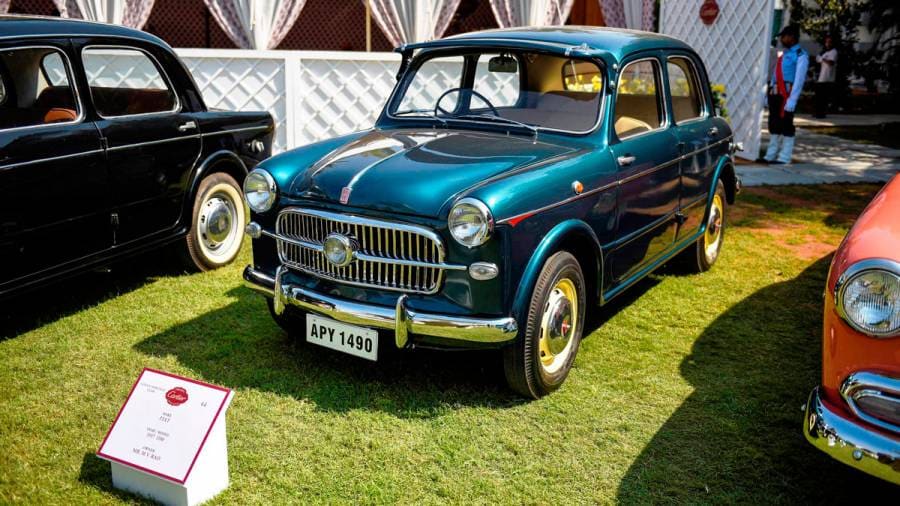 Restoring and collecting old Fiat's has become more popular after the 'Indian Heritage Class' introduced by the Cartier Concourse event
Restoring and collecting old Fiat's has become more popular after the 'Indian Heritage Class' introduced by the Cartier Concourse event
Let natural market forces decide on scrappage - A couple of the eminent personalities that I spoke to, believe natural market forces should decide which vehicle gets scrapped, and which one is saved. As cars get older, their maintenance costs increase and sourcing of spare parts becomes difficult. Many times the cost of keeping the car running is way higher than its market value, and in such cases many owners simply abandon them. Just look around and you will find many such vehicles deserted on our streets. In my view the scrappage policy should have provisions that make it much easier for the authorities to pick up such vehicles and scrap them. This will also help reduce some congestion on our roads, especially in our crowded metros.
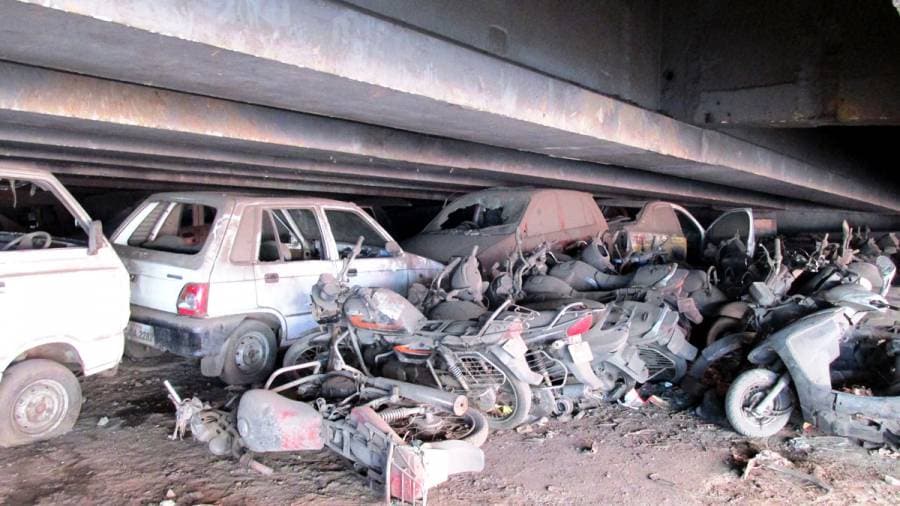 Many times the cost of maintaining or repairing a vehicle, is more than its market value so people just abandon them
Many times the cost of maintaining or repairing a vehicle, is more than its market value so people just abandon them
How will vehicles be scrapped - Presently we have a completely disorganized but somewhat effective way of scrapping vehicles, which are our "Chor Bazaars" or flea markets. Anything and everything is broken down here and sold in pieces, including vehicles. But this is done by small entrepreneurs with limited resources. So obviously the infrastructure is limited and the dismantling, very often, takes place on the road right in front of their shops or stalls. And this is neither entirely safe nor eco-friendly. You even find electric wires and other such toxic materials, being burnt out in the open, to separate the copper or other similiar metals that have good resale value.
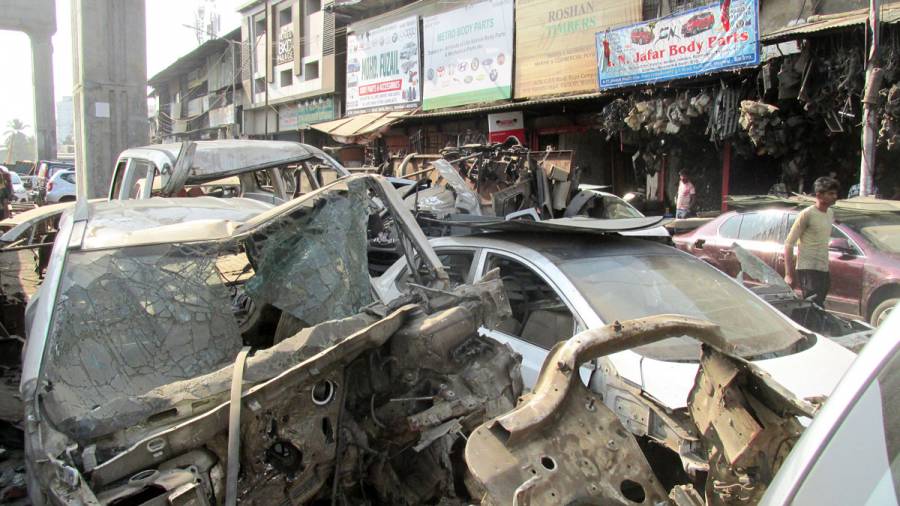 Presently vehicles are scrapped on our streets
Presently vehicles are scrapped on our streets
The scrappage policy must cater for required infrastructure - In October 2019, the Ministry of Road Transport and Highways (MoRTH), released draft guidelines for setting up authorised vehicle scrappage facilities. But from what I know, we still only have a couple of fully organized and approved vehicle scrapyards, and a lot of work remains to be done.
If executed and managed properly in an eco-friendly manner, there is huge potential for recycling materials used in the manufacture of vehicles. Recycling of steel and other metals will obviously be beneficial from a cost and environment point of view, but also things like rubber, plastic, vinyl, glass, and what have you, can all either be recycled or disposed in an environment friendly manner. Parts that are in good shape like engine and gearbox assemblies, body panels, lights, windscreens, etc., can all be dismantled and stored and cataloged in a way, where they can be reused by other vehicle owners, who may not want to spend a higher amount on brand new parts. There is a very valid possibility of making vehicle scrapyards a profitable business venture, while also contributing to recycling and our environment. So it's vital this potential is attained in a proper manner.
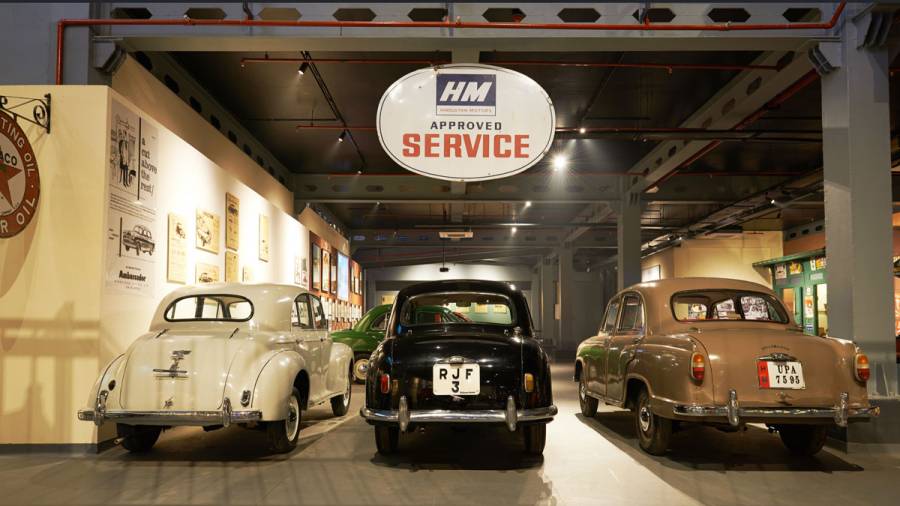 Sourcing parts for older vehicles can become easier if we have better organized and professionally run scrapyards
Sourcing parts for older vehicles can become easier if we have better organized and professionally run scrapyards
Refurbishing of old vehicles can be a small scale cottage industry - While the government may want to take older vehicles off our roads, it should not shut its eyes to the prospects of reconditioning and completely overhauling old vehicles. We are fortunate to have highly skilled mechanics, denters and painters, welders, electricians, fabricators, and so on, spread all across our country. Many of them now struggle to make a living because of newer vehicles that require less maintenance and the fact that normally such modern vehicles only go to company authorized service stations or workshops.
Given this, by creating a viable old vehicle reconditioning industry with factories where vehicles are completely stripped and rebuilt from ground up, can gainfully employ all these people. And such vehicles that get debarred from use in India can be overhauled and exported to less prosperous countries not only in our neighbourhood, but also on other continents like Africa, etc.
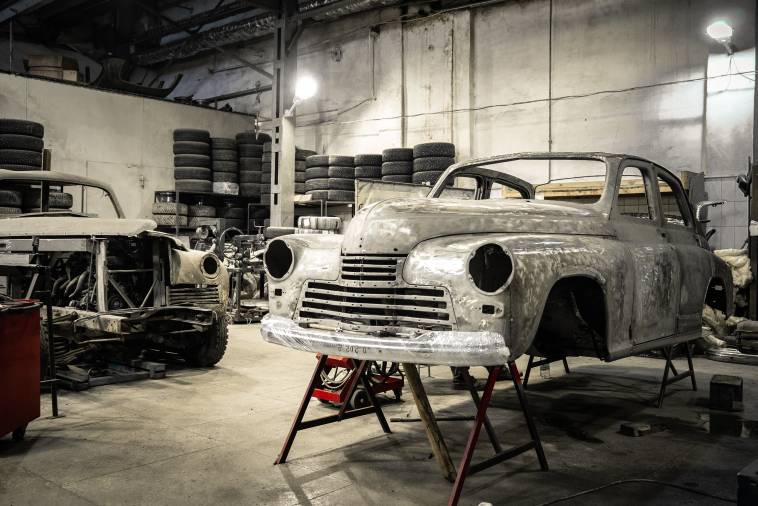 Reconditioning of old vehicles should be promoted as a small scale cottage industry (Image source Egor Vikhrev, Unsplash)
Reconditioning of old vehicles should be promoted as a small scale cottage industry (Image source Egor Vikhrev, Unsplash)
Incentive for scrappage - For long the auto industry in India has been asking for a reduction in GST and some other levies. The manufacturers have been facing difficulties for a couple of years now and are in need of a booster shot. And the scrappage policy provides the government a perfect opportunity to respond positively to the demands of the industry. While it's believed the government will give incentives for scrapping old vehicles and buying new ones in the form of reduced taxes and maybe lower registration and road tax charges, I personally think it should generally decrease the GST on vehicles to even benefit buyers who are not scrapping any old vehicle. As for those who will surrender and scrap their vehicles, they should get some additional incentives too, like lower interest loans, free registration and one-time tax, and so forth.
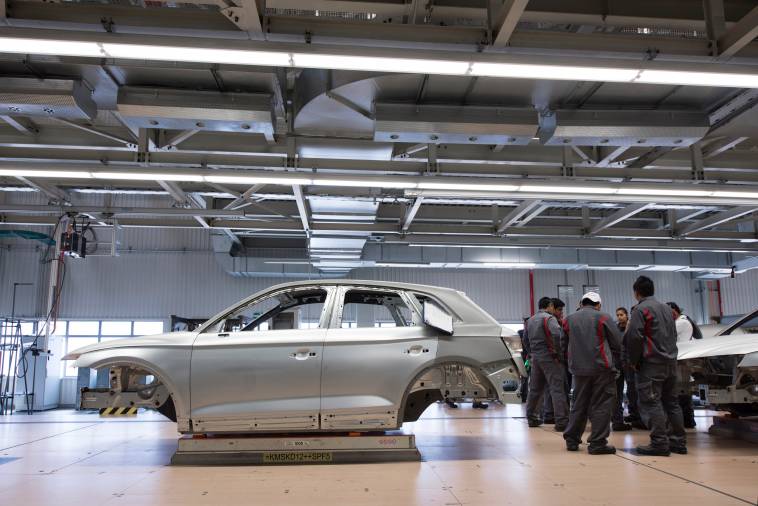 Completely overhauled and rebuilt old cars, could be exported to not so well-off countries (Image source Carlos Aranda, Unsplash)
Completely overhauled and rebuilt old cars, could be exported to not so well-off countries (Image source Carlos Aranda, Unsplash)
Improving public transport and EV charging facilities -There is a justified opinion based on past experiences, that banning or scrappage of 20 year old private vehicles will not result in any substantial reduction of air pollution. And replacing old private vehicles with new ones will also not make a significant difference to our AQI. The solution lies in creating better and more eco-friendly public transport. For starters all public transport buses should become EVs (electric vehicles). These vehicles are constantly out on our roads and also have depots where a proper fast charging infrastructure can be easily created. At the same time, the government must also focus on improving the charging opportunities for private EV owners. Unless they can charge their vehicles where they normally park, we will not see widespread use of EVs.
 Completely converting our public transport to EVs, is a good way to reduce air pollution
Completely converting our public transport to EVs, is a good way to reduce air pollution
Also see:
Vehicle Scrappage Policy - is it as good as it sounds?
Vehicle Scrappage Policy - Views of Dr. Ravi Prakash, President, FHVI
Vehicle Scrappage Policy - Views of Diljeet Titus, General Secretary HMCI
Vehicle Scrappage Policy - Views of Gautam Sen, Vice President - FIVA
Vehicle Scrappage Policy - Views of auto historian Manvendra Singh Barwani
Vehicle Scrappage Policy - Views of Dr. Anjan Chatterjee, Secretary CIVAA
Vehicle Scrappage Policy - Views of T.Thakral, Heritage Transport Museum
Vehicle Scrappage Policy - Views of Ranjit Pratap, President HCAI
Vehicle Scrappage Policy - Views of T. R. Raghunandan, Ex-IAS officer
